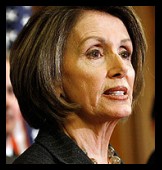 In today's Tim Dickinson interview with House Speaker Nancy Pelosi in Rolling Stone, it sure seems like she's leaning towards accountability for the criminals in the Bush Administration. Many of her words sound like the correct ones, even if she's a bit too enamored of Leahy's "Truth and Reconciliation Committee" proposal, which, among other "shameful" things, would likely results in a whole bunch of immunity, to a whole bunch of folks who deserve no such thing.
In today's Tim Dickinson interview with House Speaker Nancy Pelosi in Rolling Stone, it sure seems like she's leaning towards accountability for the criminals in the Bush Administration. Many of her words sound like the correct ones, even if she's a bit too enamored of Leahy's "Truth and Reconciliation Committee" proposal, which, among other "shameful" things, would likely results in a whole bunch of immunity, to a whole bunch of folks who deserve no such thing.
But she says she supports what Conyers is doing in the Judiciary Committee, in continuing to pursue Rove, Bolten and Miers. She says she can foresee a scenario in which senior members of the Administration are actually prosecuted. She says "The American people do not want wrongdoing to go unaddressed." She even said similar words to Fox "News" two days before the Inauguration.
So why does it always feel like she's still sitting on a fence? And, if she really believes these words she says, as House Speaker, can't she do more to make them happen?
Here's the snippets of note from Dickinson's interview. You tell us what the inscrutable Speaker really means. Or does she even know herself?...
I support what Mr. Conyers is doing. I look at it from the standpoint of a separation of powers. We believe there was a politicizing of the Justice Department under President Bush, that conversations took place at the White House that supported that activity. We asked for those documents, but we did not receive them. We asked for those people to testify, but they did not come. That, for us, is a violation of the Constitution. So what we're talking about is bigger than any specific activity. We're talking about contempt of Congress — Article One, the legislative branch.
I also support what President Obama has said: "My approach is to look forward, recognizing that no one is above the law." Both of those approaches are correct. It is also correct for us, as the first branch of government, to say, "The White House, no matter who is in it, cannot violate the Constitution by not being accountable to the Congress." And we will continue to pursue our contempt-of-Congress charges against these people for what we believe has been the politicizing of the Justice Department.
But Conyers is asking for more than that. He wants subpoena power to investigate potential abuses of war powers, to force people to testify about torture and find out what was done at Guantánamo and the CIA's black sites. Do you foresee a scenario in which senior members of the Bush administration are actually prosecuted?
I think so. The American people deserve answers. Where we are now, in terms of prosecution of White House staff, is that we have charged them with contempt of Congress. We're talking about Harriet Miers, Josh Bolten and Karl Rove. The natural course of events from here is that the speaker will determine what charge we're going to pursue, because there are more than one. Under Bush, the Justice Department told the U.S. attorney not to prosecute the case. So the beat goes on — it just gets worse. We don't know what will happen, because they've delayed it a long time.
I'm talking more about the level of a Donald Rumsfeld — people who authorized torture and greenlighted the kidnapping and rendition of innocent people.
I didn't like their policies, which is why we needed to win the election — to get them out of power. But I don't know what the evidence is against them on any specific charge. When you have a truth-and-reconciliation commission . . . look, I'm still fighting the bombing of Cambodia. I still have my gripes with the administration that bombed Cambodia before you were born, so I think it's important to bring these things out. If you have a case against someone, you bring a case.
With all due respect, we've had elections before that tossed people out, but then the same people returned to power later just as Dick Cheney did after leaving the Nixon administration. If we turn the page without full examination and prosecution, aren't we in danger of seeing this again?
We should have full examination, I'm not denying that. You asked me a specific question: "Should they be charged?" I think that further information might take us to that place, but what we want to do is unify the American people. The American people do not want wrongdoing to go unaddressed. We don't want any Democratic or Republican administration to abuse power, and that's what they tried to do with wiretapping, that's what they did with politicizing the Justice Department, that's what they did in many more ways that we could see almost on a daily basis. And yes, that should be stopped.
What Mr. Leahy is putting forward, in terms of a truth-and-reconciliation committee, has always been helpful. It was helpful in South Africa, it was helpful in Rwanda, and they were talking about doing it in places like Lebanon. Ultimately, only the Congress can be responsible for preserving our constitutional prerogatives — that we get information from the executive branch when we ask for it, that members of the administration appear before us when they are called to the Congress.


 No Way Home: Trump's Iran War a Spreading, Chaotic, Deadly, Disaster: 'BradCast' 3/3/26
No Way Home: Trump's Iran War a Spreading, Chaotic, Deadly, Disaster: 'BradCast' 3/3/26 'Green News Report' 3/3/26
'Green News Report' 3/3/26
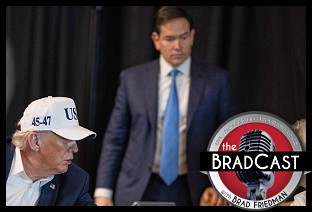 Trump Attacks Iran in 'Operation Epstein Fury': 'BradCast' 3/2/26
Trump Attacks Iran in 'Operation Epstein Fury': 'BradCast' 3/2/26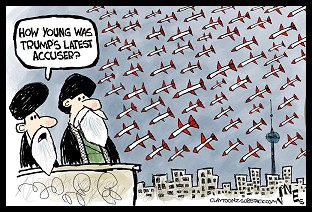 Sunday 'No, More Wars!' Toons
Sunday 'No, More Wars!' Toons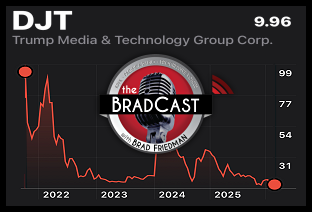 Loser Trump's Unlawful Tariffs, Failed Media Company, Corrupt SCOTUS: 'BradCast' 2/26/26
Loser Trump's Unlawful Tariffs, Failed Media Company, Corrupt SCOTUS: 'BradCast' 2/26/26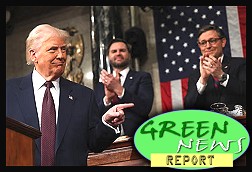 'Green News Report' 2/26/26
'Green News Report' 2/26/26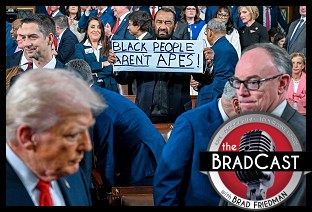 The State of the Union is ... Insane.
The State of the Union is ... Insane.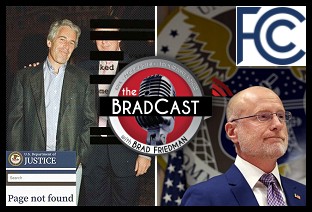 FCC's New 'Threat' to Broadcasters; NPR Confirms DOJ's 'Missing' Trump 'Rape' Docs: 'BradCast' 2/24/26
FCC's New 'Threat' to Broadcasters; NPR Confirms DOJ's 'Missing' Trump 'Rape' Docs: 'BradCast' 2/24/26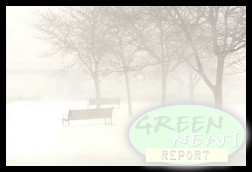 'Green News Report' 2/24/26
'Green News Report' 2/24/26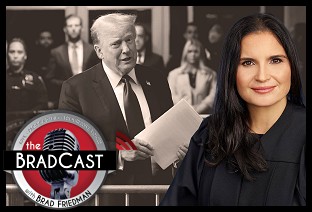 Aileen Cannon May be Covering Up Evidence of Trump Rape: 'BradCast' 2/23/26
Aileen Cannon May be Covering Up Evidence of Trump Rape: 'BradCast' 2/23/26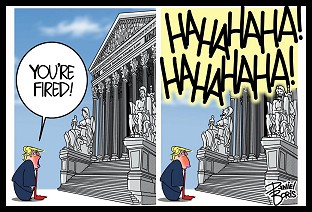 Sunday 'Plan B' Toons
Sunday 'Plan B' Toons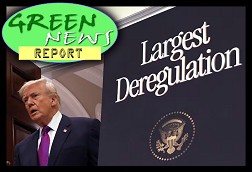 'Green News Report' 2/19/26
'Green News Report' 2/19/26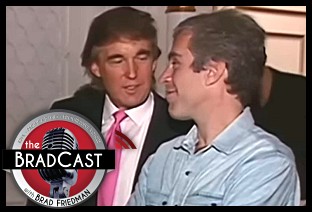 DOJ Hiding Evidence of Trump Rape, Assault Allegations: 'BradCast' 2/19/26
DOJ Hiding Evidence of Trump Rape, Assault Allegations: 'BradCast' 2/19/26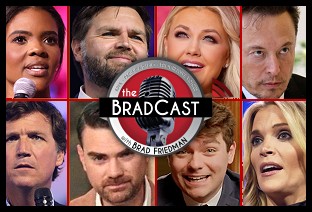 'No More Fig Leaves': Antisemitism Rising Inside MAGA, GOP: 'BradCast' 2/18/26
'No More Fig Leaves': Antisemitism Rising Inside MAGA, GOP: 'BradCast' 2/18/26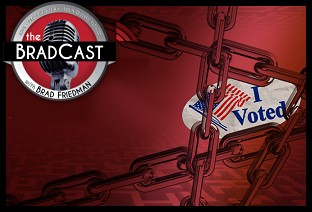 'SAVE America Act' Designed to Save GOP, Undermine Democracy: 'BradCast' 2/17/26
'SAVE America Act' Designed to Save GOP, Undermine Democracy: 'BradCast' 2/17/26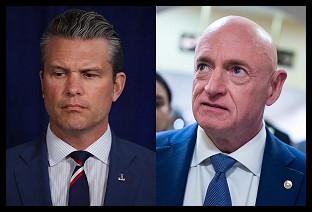 Court Blocks Hegseth Censure of Sen. Kelly
Court Blocks Hegseth Censure of Sen. Kelly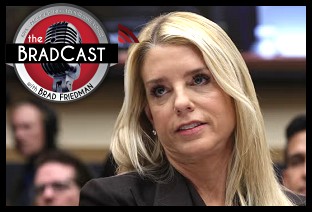 Harpy Tantrums, Legal Losses, Election Fails, Retreating ICE: 'BradCast' 2/12/26
Harpy Tantrums, Legal Losses, Election Fails, Retreating ICE: 'BradCast' 2/12/26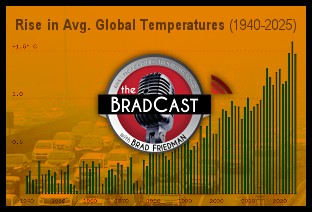 Trump to Reverse EPA's Landmark 'Endanger-ment Finding': 'BradCast' 2/11/26
Trump to Reverse EPA's Landmark 'Endanger-ment Finding': 'BradCast' 2/11/26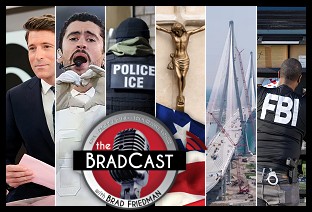 Trump's Racism, Corruption, 'Culture War': 'BradCast' 2/10/26
Trump's Racism, Corruption, 'Culture War': 'BradCast' 2/10/26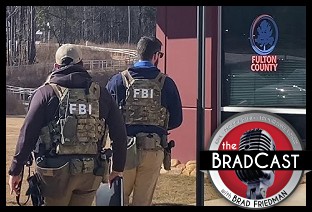 About Trump's FBI Raid of Fulton County, GA Election Hub: 'BradCast' 2/9/26
About Trump's FBI Raid of Fulton County, GA Election Hub: 'BradCast' 2/9/26
 VA GOP VOTER REG FRAUDSTER OFF HOOK
VA GOP VOTER REG FRAUDSTER OFF HOOK Criminal GOP Voter Registration Fraud Probe Expanding in VA
Criminal GOP Voter Registration Fraud Probe Expanding in VA DOJ PROBE SOUGHT AFTER VA ARREST
DOJ PROBE SOUGHT AFTER VA ARREST Arrest in VA: GOP Voter Reg Scandal Widens
Arrest in VA: GOP Voter Reg Scandal Widens ALL TOGETHER: ROVE, SPROUL, KOCHS, RNC
ALL TOGETHER: ROVE, SPROUL, KOCHS, RNC LATimes: RNC's 'Fired' Sproul Working for Repubs in 'as Many as 30 States'
LATimes: RNC's 'Fired' Sproul Working for Repubs in 'as Many as 30 States' 'Fired' Sproul Group 'Cloned', Still Working for Republicans in At Least 10 States
'Fired' Sproul Group 'Cloned', Still Working for Republicans in At Least 10 States FINALLY: FOX ON GOP REG FRAUD SCANDAL
FINALLY: FOX ON GOP REG FRAUD SCANDAL COLORADO FOLLOWS FLORIDA WITH GOP CRIMINAL INVESTIGATION
COLORADO FOLLOWS FLORIDA WITH GOP CRIMINAL INVESTIGATION CRIMINAL PROBE LAUNCHED INTO GOP VOTER REGISTRATION FRAUD SCANDAL IN FL
CRIMINAL PROBE LAUNCHED INTO GOP VOTER REGISTRATION FRAUD SCANDAL IN FL Brad Breaks PA Photo ID & GOP Registration Fraud Scandal News on Hartmann TV
Brad Breaks PA Photo ID & GOP Registration Fraud Scandal News on Hartmann TV  CAUGHT ON TAPE: COORDINATED NATIONWIDE GOP VOTER REG SCAM
CAUGHT ON TAPE: COORDINATED NATIONWIDE GOP VOTER REG SCAM CRIMINAL ELECTION FRAUD COMPLAINT FILED AGAINST GOP 'FRAUD' FIRM
CRIMINAL ELECTION FRAUD COMPLAINT FILED AGAINST GOP 'FRAUD' FIRM RICK SCOTT GETS ROLLED IN GOP REGISTRATION FRAUD SCANDAL
RICK SCOTT GETS ROLLED IN GOP REGISTRATION FRAUD SCANDAL VIDEO: Brad Breaks GOP Reg Fraud Scandal on Hartmann TV
VIDEO: Brad Breaks GOP Reg Fraud Scandal on Hartmann TV RNC FIRES NATIONAL VOTER REGISTRATION FIRM FOR FRAUD
RNC FIRES NATIONAL VOTER REGISTRATION FIRM FOR FRAUD EXCLUSIVE: Intvw w/ FL Official Who First Discovered GOP Reg Fraud
EXCLUSIVE: Intvw w/ FL Official Who First Discovered GOP Reg Fraud GOP REGISTRATION FRAUD FOUND IN FL
GOP REGISTRATION FRAUD FOUND IN FL

































